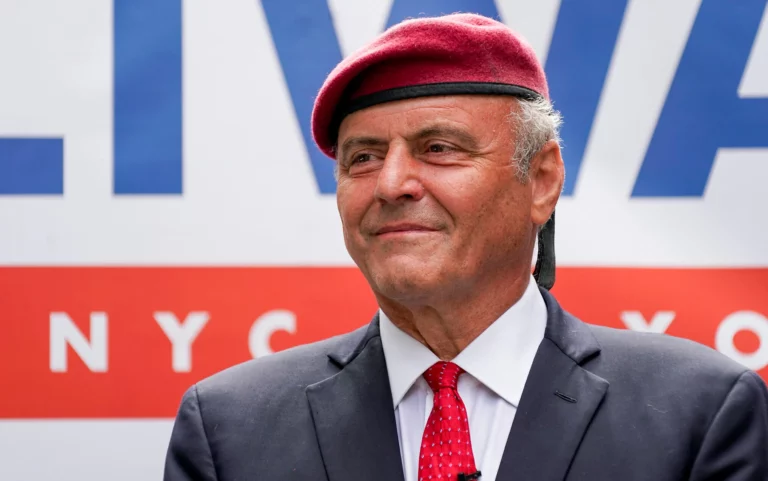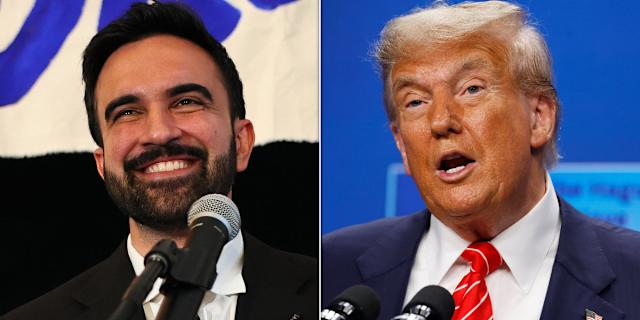 Gov. Andrew Cuomo pitched a new big-projects agency as a way to help smooth the way for massive state construction like the planned $29 billion mass transit overhaul in New York City, but critics worry about a power grab by the famously hands-on leader.
Gov. Andrew Cuomo pitched a new big-projects agency as a way to help smooth the way for massive state construction like the planned $29 billion mass transit overhaul in New York City, but critics worry about a power grab by the famously hands-on leader.
The new state budget recently signed by Cuomo creates the Design and Construction Corp., a three-member panel to be selected by Cuomo that will advise other state departments on construction projects costing $50 million or more, such as large university buildings, the new Penn Station and planned upgrades at the Metropolitan Transportation Authority.
While Cuomo’s administration argues the new agency will save money by making complex projects more efficient, some contractors question the need for more bureaucracy. Critics also say they worry the agency could allow the powerful Democrat to micromanage projects already overseen by other government agencies.
“Fundamentally it’s a flawed and bad idea,” said Mike Elmendorf, president of the Associated General Contractors. “It’s based on the premise that state agencies — many of them already controlled by the executive — are incapable of delivering large, complex construction projects so they need this group of three people. … The only person who wanted this was the governor.”
Cuomo initially wanted the corporation to be able to terminate the contracts of projects but lawmakers balked at giving the new agency such sweeping powers.
“I still have concerns about why you would want to put this power into the hands of three people,” said Assemblyman Gary Finch, a Cayuga County Republican. “Whoever he appoints they’re going to be his people. It puts the governor directly in charge of the whole process.”
Cuomo plans to appoint the members of the corporation in the coming weeks, spokesman Rich Azzopardi said Friday. He said the new agency is about making government more effective.
“We have an obligation to ensure that these infrastructure projects are delivered on time, on budget and that the use of public taxpayer dollars is maximized,” he said. “This new process will provide the uniformity, consistency, and coordination to meet this goal and we’re glad the Legislature agreed with this approach.”
The corporation was born out of the fine print in this year’s budget, which lawmakers approved last month. Its mission will be to manage timelines and provide oversight and guidance to public agencies working on large construction projects, according to Gerrard Bushell, president and CEO of the Dormitory Authority of the State of New York, the state’s main construction finance agency. It will serve as an umbrella organization for the corporation.
In simple terms, the corporation will work with other entities — a state agency or a public university, for example — to ensure their construction projects don’t fall behind or balloon in cost.
“To continue to grow in size and strength, we must develop a new interconnected, planned system of mass transportation, roads and bridges and airports for the next 100 years,” Cuomo said in unveiling his vision for the agency in his budget proposal in January. “We can and we will.”
Bushell said many of the concerns about the new agency are based on misinformation.
“This is not another bureaucracy,” Bushell said. “It’s guidance. It’s oversight.”
Much of the debate about the corporation, however, has focused on whether it’s an attempt by Cuomo to gain further control over the Metropolitan Transportation Authority’s $29 billion modernization plan, which includes 30 remodeled subway stations along with repairs to bridges and tunnels.
Cuomo has promised the state will pay $8.3 billion of the total price tag. The work will be directed by the MTA board, which is appointed by the governor. The corporation’s involvement could give Cuomo even more sway.
Jamsion Dague, a research associate with the Citizens Budget Commission, a nonpartisan group that studies the operation of state government, said the corporation’s involvement could benefit smaller agencies, such as an upstate community college, that have little expertise with big projects.
But he added that it could create new problems for large authorities and agencies like the MTA trying to coordinate huge projects — especially if it’s seen as meddling by the governor.
“Implementation will be the key,” Dague said.
(AP)










